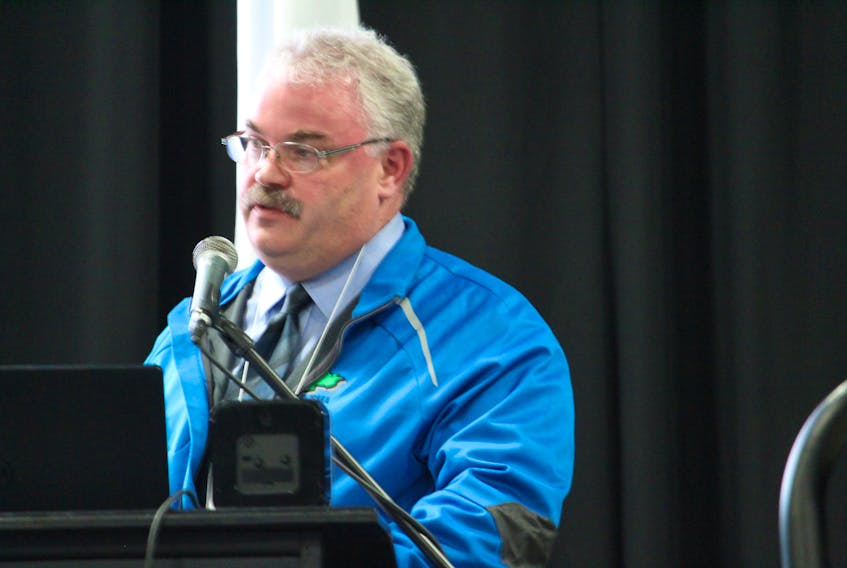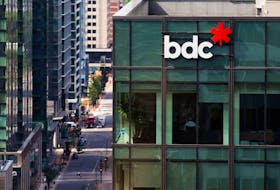YARMOUTH, NS - Millions of dollars that consumers are paying businesses to have their recyclable material processed is not reaching municipal units.
Representatives from solid waste authorities provided information on the issue during the extended producer responsibility (EPR) session at the Mariners Centre on May 11 at the Nova Scotia Federation of Municipalities spring workshop.
In Nova Scotia, solid waste is regulated by the province but municipalities are tasked to manage the materials. This includes collection education, disposal, processing, marketing and managing compost.

Dealing with that sector is expensive. Total gross costs in 2015 for managing solid waste in the province were roughly $110 million. Of that amount, approximately $25 million goes towards recycling.
Stephen Rayworth, solid waste manager for Cumberland Joint Services management authority, says one of the approaches that other provinces are using to manage this material is extended producer responsibility (EPR).
“Essentially industry is asked, in partnership with municipal units, to help manage the costs and responsibility of those blue-bag materials,” he said.
Over 80 per cent of the population of Canada is under an EPR regime. Alberta and New Brunswick are currently talking about EPR.
Rayworth says big industry uses national pricing structures to set their costs for particular items when they put them on the shelf. A box of Rice Krispies in a B.C. Walmart for example, is the same price in Nova Scotia, where there is no EPR program.
“Said another way, the cost of EPR is already included in the products in Nova Scotia. We’re paying for industry to manage the materials but not getting the benefit,” said Rayworth.
“In 2016, industry contributed $367 million to the provinces that have EPR, towards recycling of the materials, but Nova Scotia got zero.”
The fees for recyclable items are typically less than one cent per item – sometimes tenths or even hundredths of a cent.
Regional chairs – i.e. the people who chair the solid waste management committees for Nova Scotia’s waste management regions – are proposing a high-level EPR model and are looking for comment from municipal units.
The regional chairs committee is proposing that a new EPR program would use existing infrastructure and resources.
“Industry does not actually want to collect material. They want to pay municipalities to do that for them,” said Rayworth.

Valda Walsh, co-ordinator for solid waste management region 6, explained some of the benefits of implementing the EPR program.
“There are nine material recycling facilities in the province for a population of under a million. In other provinces that have EPR they have one super material recycling facility. With the volumes of materials they manage they have no problem marketing those materials,” she said.
The regional chairs committee has developed a tool kit for municipal units to present in each region and is working on a strategy on how to engage businesses to move this forward.
Walsh says feedback from municipal units and businesses will be used to formulate a formal proposal of what an EPR model would look like for Nova Scotia and make that presentation to the environment minister.
“There’s a large role for all of us to play. It has to be a collaborative approach. You do not move forward in a silo,” she said.
Municipal representatives who stepped up to the mic after the presentation expressed their support for having the province included in the EPR regime.
“Should Nova Scotia follow? That shouldn’t even be a question. We have to start acting,” said Jim MacLeod, one of the delegates from Cape Breton Regional Municipality.









